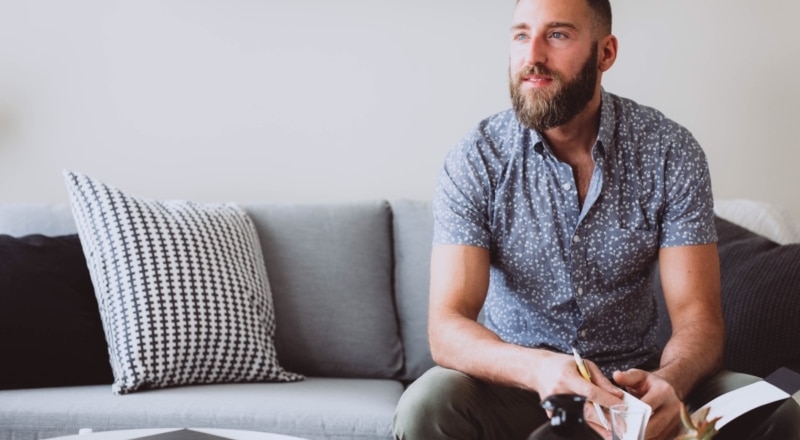Tips for talking to a therapist about your mental health
It can be difficult to open up to a therapist or counsellor, but some of Roisin’s tips may make the process easier.

Sometimes life can throw things at you that can get you down, and although support from family and friends is important, you may feel the need to get some extra help from a professional. Although everyone’s experience is different, these are just a few tips that I would have liked to have had when beginning my journey in dealing with mental health professionals, or even just talking to my own GP about mental health.
Trust your gut
It’s important to find the right therapist for you, and someone who helps you. Many people are nervous before their first appointment, and that’s completely normal. Opening up to a therapist can be difficult. The therapist may push you outside your comfort zone, and you may find this challenging, but this can all be part of the learning process.
If it’s gotten past the first few appointments and you feel like you’re not making a connection with your therapist, talk to them about it. Therapy is the one place you can have a completely open and honest conversation about how you’re feeling. Talking to them about your issues with therapy, or with the therapist themselves, is a valuable part of learning self-care and self-awareness. You may feel that during the sessions, they aren’t listening to you, taking your problems seriously, or that they’re not explaining things to you properly. You may not feel comfortable opening up to them, or you may just feel like there isn’t the right connection between you. If you feel like this is happening, it’s important to think about whether you’re uncomfortable as they’re pushing you outside your comfort zone, or if it’s not the right fit, and it may be time to think about changing to a different therapist. There’s no shame in deciding to change counsellors, therapists or even GPs.
You are completely within your rights to explain to them that you feel it isn’t the right fit for you, and to work on finding somebody else. They may even be able to recommend somebody else for you to talk to. There’s no reason to feel guilty about addressing your needs before anyone else’s.
Finding the style that works for you
You might need to trial a few different therapists/counsellors before you find the one that suits you and you feel comfortable with. Some people may attend one therapist and feel that they’re a perfect match, which is great for them, but remember not to get too disheartened if this isn’t the case for you.
Your mental health is important, and it’s important to find the right person who can help you on your journey. Counsellors or therapists might follow different styles, so it may take time to find the style that suits you. Some may ask questions and want to draw things out, while others may follow more of a sitting and listening approach, so take the time to decide which approach you prefer.
Be as open as possible
Your therapist/counsellor is there to help you, so there’s no point in holding anything back or lying about anything you’re feeling to these professionals. There’s nothing you can say that will shock them as they’ve heard it all before. Most of the time, they can tell when you’re holding something back or not telling the truth about something. Holding back can just make it more difficult for them to help you, and it will just make it harder for you if you bottle it up.
Of course, you don’t need to reveal everything in the first 10 minutes of a session, but opening up bit by bit can be really helpful in establishing trust and feeling comfortable. Remember, anything you do say will be treated 100% confidentially unless there is a risk to yourself or others.
Try not to be hard on yourself
The main thing is not to feel ashamed or embarrassed about seeking help. You’re doing a really brave thing, so try not to be hard on yourself. Some people find it hard to admit they need support from a therapist/ counsellor, so be proud that you’re taking an active step in helping yourself. You’re doing the best you can!
If you’re struggling with your mental health and want to speak to someone, your GP is a good place to start. Other than this, many places offer low-cost or free counselling services, such as Mindspace Mayo, Jigsaw, and local Family Resource Centres.
Feeling overwhelmed and want to talk to someone?
- Get anonymous support 24/7 with our text message support service
- Connect with a trained volunteer who will listen to you, and help you to move forward feeling better
- Whatsapp us now or free-text SPUNOUT to 50808 to begin.
- Find out more about our text message support service
If you are a customer of the 48 or An Post network or cannot get through using the ‘50808’ short code please text HELLO to 086 1800 280 (standard message rates may apply). Some smaller networks do not support short codes like ‘50808’.






